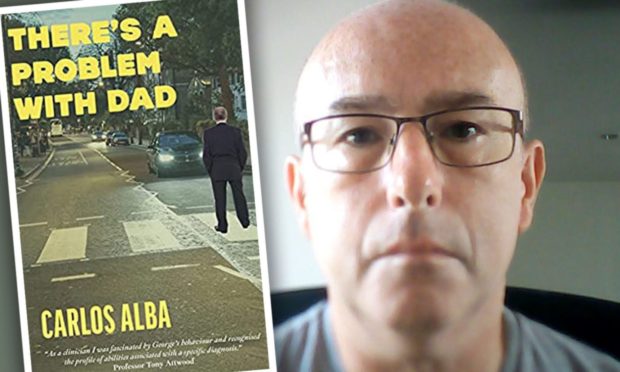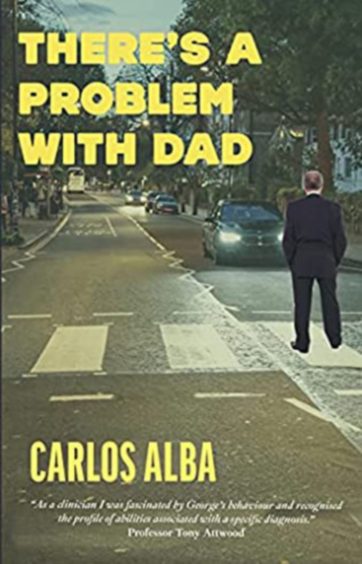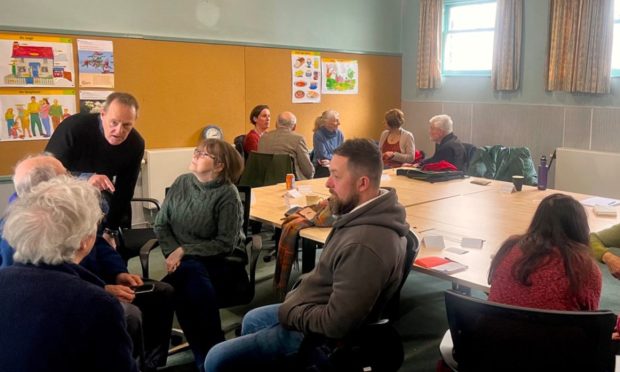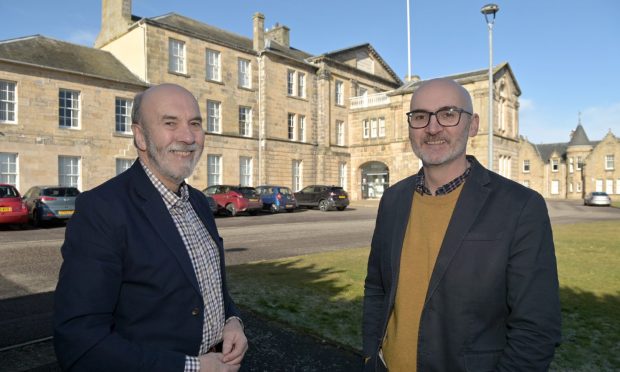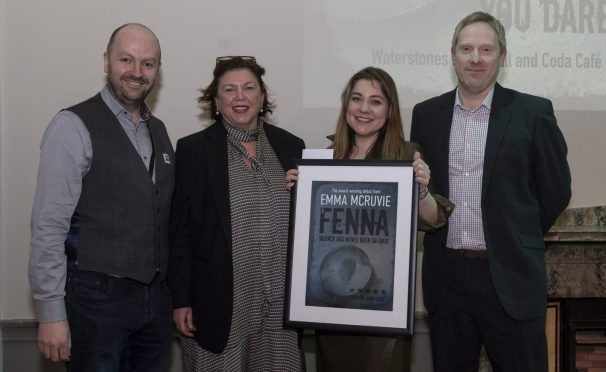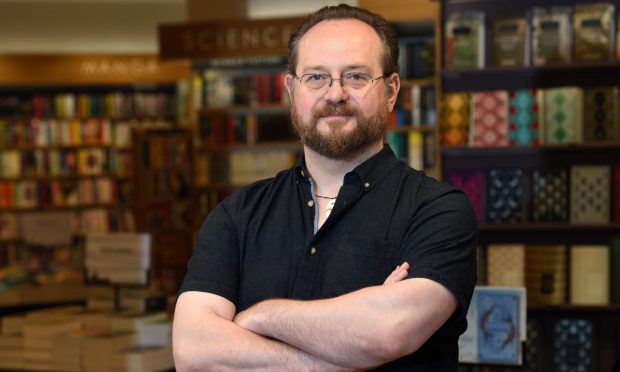Carlos Alba’s new novel is a family tragedy which shines a light on the ‘hidden issue’ of high-functioning autism and its devastating impact. Gayle Ritchie finds out more.
Read Carlos Alba’s new novel, There’s a Problem with Dad, and the chances are it will chime with you.
You’ll probably find yourself thinking something along the lines of: “I know someone like that”, or “That’s just like my brother/uncle/father/friend”.
The point is, the issue of people with high-functioning autism is wider spread than many of us realise.
In Carlos’s words: “Every day there’s a celebrity who reveals themselves to be on the spectrum.”
The Glasgow-based author didn’t have to venture far to do his research. He had first-hand experience of undiagnosed, high-functioning autism and the devastating impact of this on loved ones.
While the protagonist in his novel George Lovelace is a fictional character, many of his traits are based on Carlos’s father-in-law Andrew.
“I always felt his behaviour was a bit bizarre, a bit off,” he reflects.
“He was quite shy and unforthcoming and inhibited emotionally. My wife accepted that was who he was. A bit of a character.”
The novel follows the story of George, a widower in his 70s, who has always done everything by the book. He’s got a steady job, wife and children and is a reliable sort who’s never late for an appointment.
However, he has always felt out of step with those around him, and they with him.
Relationships with his wife and children have always been strained, awkward and unpredictable.
When George is charged with sexually assaulting a 17-year-old girl, his inability to communicate with others pushes him, and those around him, to the limit.
Through his eyes, readers are given an eye-opening insight into his thought-process, and ultimately see the devastating impact his “unusual” actions and behaviour have on his loved ones.
It’s the third novel from award-winning journalist and dad-of-three Carlos.
It wasn’t until he read a book by former Sunday Times colleague Sally Brampton about growing up with a father with undiagnosed high-functioning autism that bells started to ring.
Every page chimed; he recognised many of Andrew’s intensive, obsessive traits in Brampton’s father.
“Many people have this idea of autism from the film Rain Man, but that’s an extreme form of autism,” he says.
“In the case of those with high-functioning autism like my father-in-law, people who met him might not realise there was anything unusual about him.
“That doesn’t mean his behaviour was any less problematic. The older he got the more entrenched it became.
“He had his life routinised; he couldn’t do something on a whim. He had a one-track mind and an obsessive focus which could be frustrating.
“If you went out for a meal, he’d view it as purely functional. He’d shovel food down his neck and get up to leave. It was the subject of family jokes.
“He never told his children he loved them and was so distant emotionally.”
Once Carlos’s family deduced that Andrew had a form of Asperger’s, they were able to filter all his seemingly odd behaviours through a “prism”, and everything became explainable.
They realised he thought differently; it wasn’t that he was trying to be difficult.
A major consideration, when it came to writing the book, was whether Carlos would offend or upset Andrew’s family.
“I was conscious about that from the start. Andrew passed away in 2012 and I started writing the book in 2016 so there was a time lag.
“In one sense it was an exploration of someone with high-functioning autism but also, it was a creative work of fiction that I’d want people to read and enjoy.
“In order to do that, I needed to identify with the character and make him likeable.”
His research consisted of his own experience, chatting to people with Asperger’s and professionals including Tony Attwood, a leading authority on the subject.
The novel is a combination of sad, hilarious, tragic and deeply insightful. And it’s so much more than a book just about autism.
“It’s a story about human frailty and misunderstanding,” Carlos says.
“It’s about the way they interpret George and come to understand him. Autism aside, it’s a human drama with a satisfying sense of catharsis. Of people coming to understand those they misunderstood.
“Everyone who’s read it has said, ‘I know somebody like that’. I think autism is a lot more widespread than most people ever realised.
“People with autism think differently but they’re neither worse nor better than neurotypical people.”
“In one sense it was an exploration of someone with high-functioning autism but also, it was a creative work of fiction that I’d want people to read and enjoy.”
Carlos Alba
When it came to the writing process, Carlos went through scenes in his head “in bed, in the shower, in the car”, so that when he sat down at his keyboard, he was ready to tap it all out.
While he started writing the novel in 2016, it sat in a drawer, forgotten, until lockdown triggered the inspiration to dig it out, pull all the threads together and send it off to a publisher.
Carlos’s hope is that it will strike a chord with people who know someone with high-functioning autism and that they’ll start to see that person and their behaviour in a more understanding light.
In terms of advice for fellow writers, Carlos recommends simply getting something down on paper, “even if it’s only a few pages”.
“It’ll start to take on a life of itself. The file will be sitting there, waiting for you to add to it. And the more you add to it, the more real it becomes. If you think about it for too long and don’t put something down, it becomes a burden. When you start, you feel a responsibility. For me, writing is a form of therapy and relaxation. I love the creative process.”
Carlos, who runs public relations consultancy Carlos Alba Media, has previously worked as Scotland editor of The Sunday Times and education correspondent for The Herald.
- There’s a Problem with Dad by Carlos Alba is £9.99 and available at ringwoodpublishing.com
